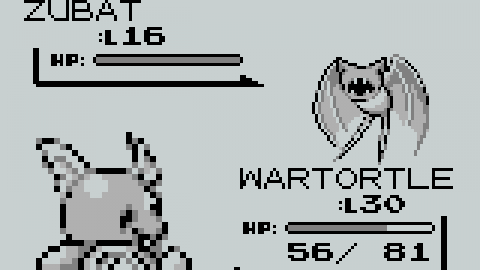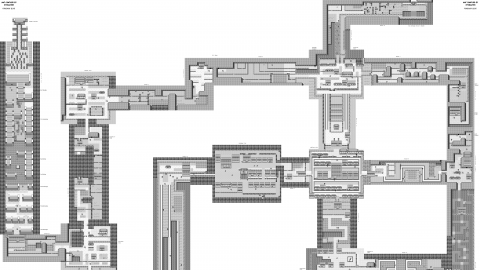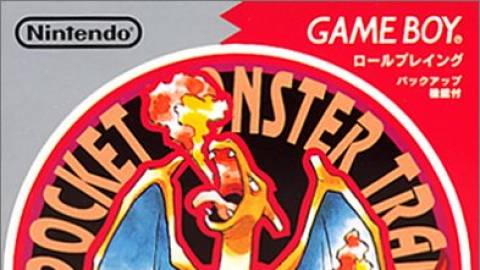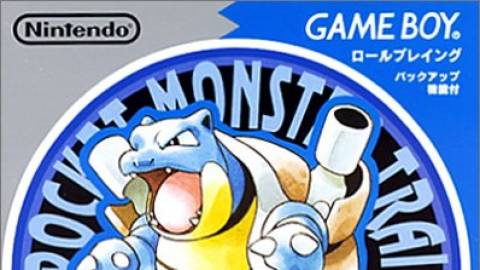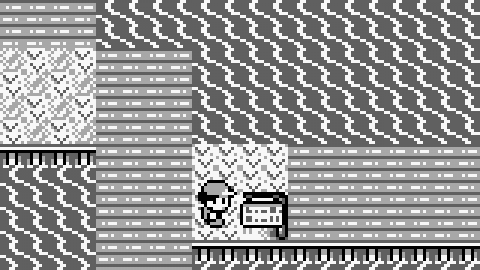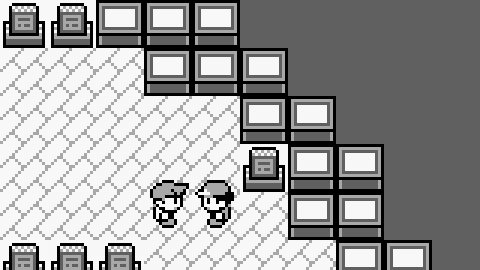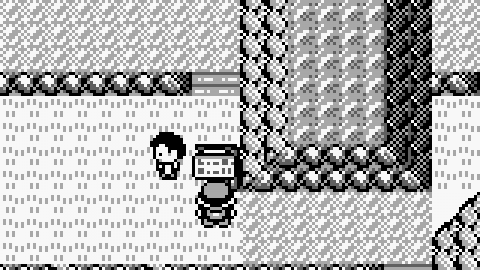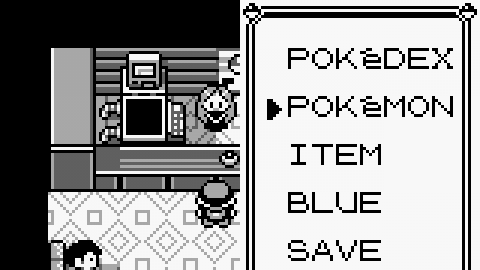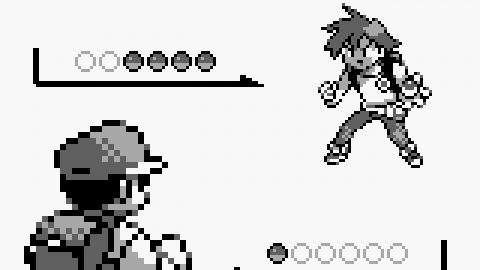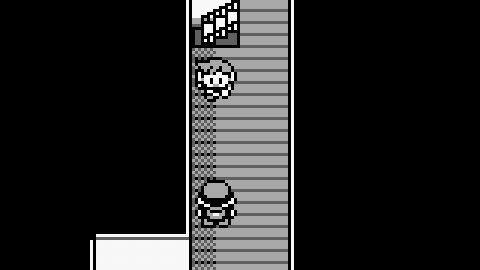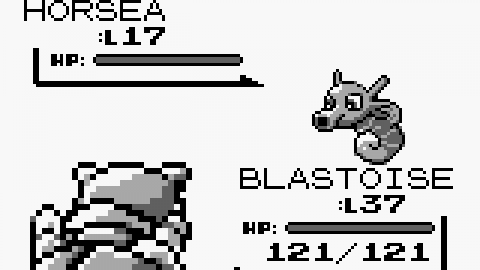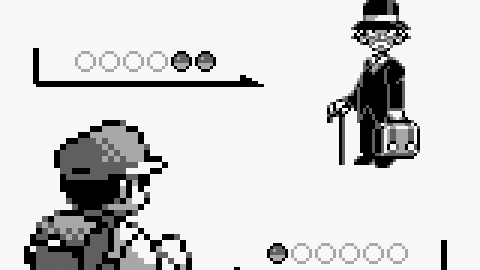Overview
Pokémon Red and Blue are the first two releases in Nintendo's long-running Pokémon franchise. Developed by Game Freak, Red and Blue were the studio's first major successes. The company would eventually go on to create several direct sequels to the games for Nintendo's portable consoles that followed the Game Boy.
Plot
The basic premise of Pokémon Red and Blue involves a nameable protagonist who sets off on a journey to thoroughly train, catch, trade, and ultimately master as many Pokémon as he can. After acquiring one of three Pokémon from Professor Oak; Bulbasaur, Squirtle, or Charmander, and then fighting a subsequent training battle with his rival, the main character sets off to explore the world to fulfill his goals. In order to achieve ultimate success, he must use his Pokémon team to fight and defeat eight Gym Leaders, specialists who each deal in a specific type of Pokémon, as well as the Elite Four and Gary Oak. Only after all of that has been achieved does the story technically end.
Gameplay
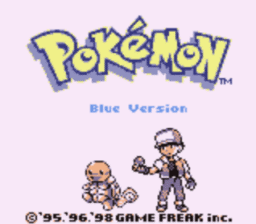
Most Pokémon are acquired by "catching" them while they are still out and about in the wild. They can be found by the player simply roaming about in the Pokémons' native habitats, which usually happens by walking around in grass, swimming around in a body of water, or in other similar instances. Once a battle has been initiated, it is up to the player to weaken the wild Pokémon's Hit Points (HP) enough so that they can throw a Pokéball at them. Pokéballs are the containers which hold each trainer's Pokémon and as long as the wild Pokémon cannot break free from one, it can be freely used by the trainer who owns it. If a trainer's team is full at the time of the capture, the newly acquired Pokémon is then sent to a PC for storage and can be retrieved at a later point in time. Captured Pokémon can also be given nicknames, although doing so is optional. In the anime this is shown through Ritchie, who also puts stickers on his Pokéballs to differentiate them.
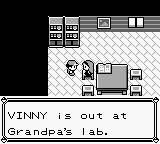
Pokémon Red and Blue's battle system consists of gameplay mechanics which are common with many turn-based Japanese RPGs. Up to six Pokémon can be a part of a trainer's roster at any time, which is where the game's defining characteristics come into play.
Since each Pokémon can have a different type (Grass-type, Water-type, Fire-type, Normal-type, Flying-type, Electric-type, Ground-type, Rock-type, Ice-type, Psychic-type, Bug-type, Fighting-type, Poison-type, Ghost-type) a system of strengths and weakness is employed, in addition to the standard calculations based on their individual statistics. Every attack is also assigned a type, which is also taken into consideration during battle.
Although most Pokémon have limitations regarding which attacks they can learn, they are allowed to learn some which aren't the same as their type. No attack can be used an infinite number of times, though, as the amount of usage is dependent upon the amount of Power Points (PP) each attack has. These Power Points can be restored either through the use of specific items or by visiting a Pokémon Center, which is also used to fully heal a trainer's current roster of Pokémon.
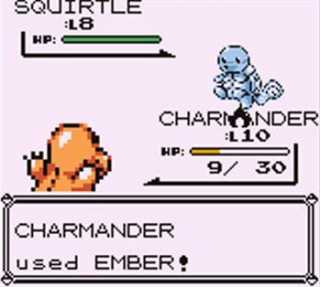
As the Pokémon enter into battles and continue to win them, they gain experience points. Once they accumulate a specified amount, they level up, which serves two purposes. Leveling up the Pokémon in Red and Blue allows most Pokémon to learn new attacks which can be added to their arsenal, in addition to raising their individual statistics.
However, because each Pokémon is limited to four different attacks, considerations must be made as they reach progressively higher levels. Leveling up also allows most Pokémon to evolve, enabling them to become a new species. The point at which each Pokémon may evolve is different depending on the species, although the trainer is allowed to prevent a Pokémon from doing so if they desire. One such advantage which comes from canceling an evolution is that more advanced and powerful attacks can be learned earlier if the Pokémon doesn't evolve, assuming the attack can still be learned in an evolved form.
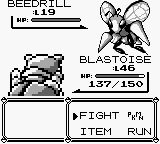
With Pokémon, though, it is not always possible to evolve them via leveling up. In those instances, special stones can be given to the Pokémon to force them to evolve. The most famous Pokémon in the Red and Blue versions which are able to do this include Pikachu, Jigglypuff, and Eevee, the latter of which has multiple evolutions depending on the stone applied. Some Pokémon still do not evolve in this manner, however, which is elaborated upon below.
Outside of battling, one of the defining traits of Pokémon Red and Blue is its trading feature. Because Red and Blue each have Pokémon which are exclusive to their individual versions, collecting all of the Pokémon requires trading with someone who owns the alternative version. Trading is done by connecting the two Game Boys via a link cable. Each person then decides which Pokémon they wish to trade and the duo's choices are transferred. With a few very specific Pokémon, the trading process allows them to evolve once the switching is complete. Although traded Pokémon are under the command of their new trainer, they still carry identification which indicates who originally had them.
Two linked Game Boys can also be used by trainers to battle one another. The majority of the rules which govern battle in the single-player game remain the same, although items cannot be used in linked battles. Skirmishes are otherwise the same, with a winner being declared once one trainer's entire team of Pokémon has fainted.
Pokémon List
Pokémon Gyms
During the adventure, there are eight different gym leaders to fight in order to acquire their badges. With these badges, the player is allowed get allowed to Victory Road, and reach Indigo Plateau for the Elite Four. Each Pokémon Gym Leader is an specialist in some Pokémon type, it's important to notice their type for better chances of counter-attacking with a more effective Pokémon. Here are the gym leaders, their location, their specialty and Pokémons used.
| City Gym | Leader | Badge | Pokémon type | Pokémon used |
|---|---|---|---|---|
| Pewter City Gym | Brock | Boulder Badge | Rock / Ground | |
| Cerulean City Gym | Misty | Cascade Badge | Water | |
| Vermilion City Gym | Lt. Surge | Thunder Badge | Electric | |
| Celadon City Gym | Erika | Rainbow Badge | Grass | |
| Saffron City Gym | Sabrina | Marsh Badge | Psychic | |
| Fuchsia City Gym | Koga | Soul Badge | Bug / Poison | |
| Cinnabar City Gym | Blaine | Volcano Badge | Fire | |
| Viridian City Gym | Giovanni | Earth Badge | Ground |
The Elite Four
The very four best Pokémon trainers are the ultimate challenge for this game. They have to be fought, along with the current Pokémon Champion, in order to achieve the goal of becoming the greatest Pokémon trainer.
| Elite Four | Pokémon type | Pokémon used |
|---|---|---|
| Lorelei | Water / Ice | |
| Bruno | Fighting | |
| Agatha | Ghost | |
| Lance | Dragon / Flying |
Elite Four Champion Gary Oak (Rival)
Pokémon Type - Gary has a very balanced team
Pokémon Used - Gary's Pokémon for the final battle will depend on which Pokémon he chose at the Professor Oak's lab. HIs choice will depend on the player's, whatever Pokémon the player chooses, he will choose the Pokémon with a stronger type against the player's. For example, if the player chooses Bulbasaur he will choose Charmander because fire is naturally strong against grass. Here are the three sets of Pokémon he might be using depending on the last evolution of the Pokémon he chose at the lab in the beginning of the game:
| Gary's Starting Pokemon | Other Pokemon in Line Up |
|---|---|
| With Venusaur | |
| With Blastoise | |
| With Charizard |
Glitches
MissingNo.
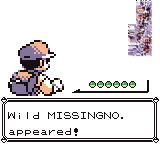
MissingNo.; Easily the most famous Pokémon glitch of all time. MissingNo. is a buggy Pokémon which, if caught, can make all kinds of strange things happen in the game.
To catch a MissingNo. is a very simple process. In Viridian City, talk to the old man who teaches how to catch Pokémon. Talk to him three times and when he asks the player if he wants to learn to catch Pokémon, the player must select 'no' the first two times and then say 'yes' the third. After watching him catch a Weedle, fly to Cinnabar Island and surf along the right edge of the island and don't leave the edge. Once a Pokémon battle happens, the player can run into a MissingNo. or one of the glitched Pokémon over level 100.
Some strange things will happen to the game when the player catches a MissingNo.. The item in the sixth slot will be duplicated to over 99. Also, battle history with the Elite Four is completely glitched. If MissingNo gains one level the he will evolve into a level 1 Kangaskhan. If the player catches MissingNo. then it can effect the game cartridge by altering the text to gibberish when checking Pokémon in the elite four.
Duplicating Pokemon
This is a trick that many players would do send a good Pokémon to a friend and still be able to keep the Pokémon to play with for themselves. To do this trick the player needs to find a Pokémon that the player wants to duplicate for whomever the player is trading to and the recipient must get a Pokémon they are willing to lose. Start a trade like normal but on the Game Boy that is trading the good Pokémon switch it off before it says trade complete on the screen, on the other players game it will come up with the usual message and they will have the desired Pokemon.
The Invisible PC
In Celedon City, there is a hotel in the bottom right-hand corner of the city. When Red is in the hotel he needs to go all the way to the right and go as far north as he can, take two steps back and one forward and then he will be able to access a PC out of thin air!
Misconceptions & Rumors
PokéGods
Along with MissingNo. there were always rumors about such Pokémon called PokéGods. These Pokémon were believed to be obtainable in many ways, but were never true.
One such rumored way of getting these Pokémon was to get access to Bill's Garden, which was supposed to be a secret place behind Bill's house where powerful Pokémon resided. Another rumored way was to get access to the PokéGods City. This was a place that would be accessible to after having beaten the Elite Four 50 times in a row without saving or healing, Professor Oak would saying something like "I'm getting tired of this" and let the player roam around the ending area, where a ladder would be located. This is also not true.
The more viable option was the truck off to the side before getting on the S.S. Ann. This was possible by finding a way to surf before actually boarding the S.S. Ann. In the back of the truck were rumored to be a Mew and a Togepi. Togepi actually turned out to be a real Pokémon in Silver and Gold. Another Pokégod that turned out to be real was Pikablu. This Pokémon turned out to be Marill, the little blue water Pokémon.
Some of the PokéGods were rumored to have the names listed below (this is only a few of the many PokéGods):
- Charcolt
- Rainer
- Sapusaur
- Locustud
- Mewthree
- Pikablu
- Chrono Mew
- Sandswipes
- Nidogoddess
Some PokéGods were believed to evolve from already fully evolved Pokémon using an item called a Mist Stone. However, the Mist Stone was just another false rumor.
Pokémon Green Version
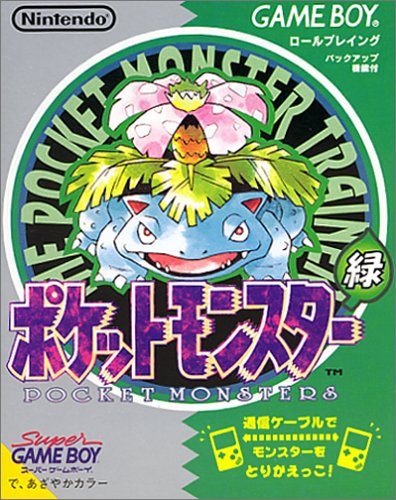
Although it is commonly believed that the first releases in the Pokémon series were Pokémon Red and Pokémon Blue, the Blue version of the game actually made its debut under a different title and was known as Pokémon Green. The games were originally released in Japan as "Pocket Monsters Red" and "Pocket Monsters Green". Due to numerous glitches and bugs in these original versions of the game, such as being able to find Pokémon in the wild which were only supposed to be obtainable at certain later stages in the game, they were amended and re-released as the more commonly known Red and Blue versions.
Many of the sprites were changed and there were also some slight changes to the locations of wild Pokémon. These updated versions were later released in America and Europe, therefore the Green version was never released outside of Japan. Interestingly enough, when the games were remade and updated for the Game Boy Advance, Nintendo decided to reference the Green version rather than the Blue, and the new games were released as Pokémon FireRed and LeafGreen.
Cartridge Specifics
Pokémon Red and Blue both utilize a CR2025 battery for save data. Various sources on the Internet state that early cartridges used a 2016 battery, and it is possible to replace the existing battery with a CR2032.

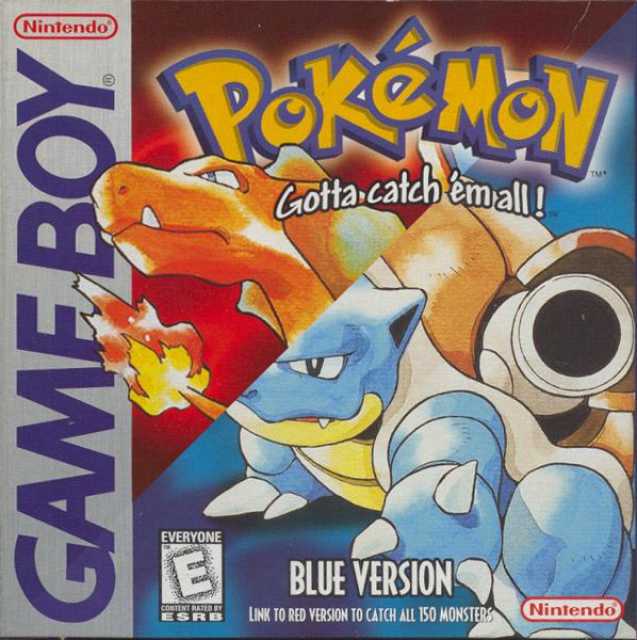
 Game Boy
Game Boy Nintendo 3DS eShop
Nintendo 3DS eShop


